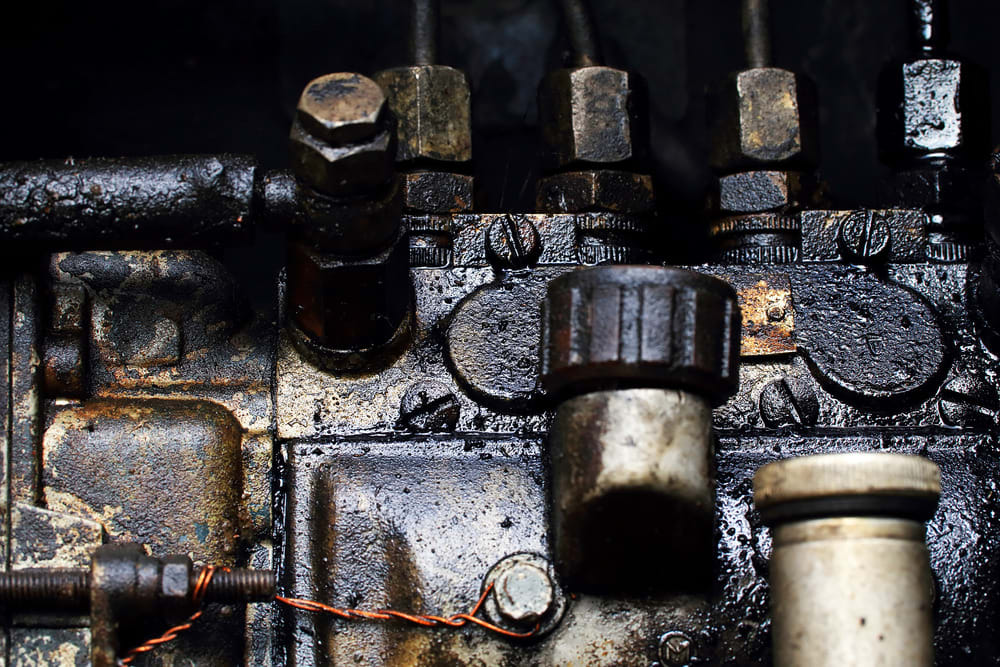

Oil changing is among the most important vehicle maintenance tasks. New, unused engine or motor oil is a transparent, easily flowing liquid that combines base stock and a collection of additives. These additives can hold soot particles and maintain the consistency of the engine oil. Oil lubricates the moving parts of the engine and in this way, not only reduces friction but also helps to keep the engine cool. With frequent use, the motor oil accumulates coolant, dirt, water, fuel and other contaminants. It also breaks down or oxidizes because of the intense heat of the internal combustion engine of your car. As a result, it turns into sludge, a thick gel-like fluid that can cause serious damage to your engine.
How motor oil works
Engine or motor oil can be either conventional or synthetic. It works to absorb and protect your engine from contaminants. Over time, however, it reaches its capacity of absorption and instead of carrying away contaminants, deposits them on the engine surfaces and in all the other parts where it circulates. Instead of lubricating and reducing friction, the oxidized sludge causes a buildup of heat in the engine. Motor oil functions as a coolant to some extent, but oxidized sludge acts as the opposite. You’ll notice that the oil pressure is falling, and you get lower mileage per gallon of gas.
Motor oil sludge first develops on the top of the engine, the valve cover section, and in the oil pan. Next, it blocks the oil screen siphon and stops oil from circulating in the engine leading to more damage with every stroke. Aside from severe engine damage, you also risk damaging the gaskets, timing belt, radiator and cooling systems of the car. Ultimately, the engine could stall completely.
Common reasons for engine oil sludge buildup
Engine oil is unstable and tends to oxidize when exposed to oxygen under conditions of high temperature. Oxidation can occur faster if the engine oil is heated over extended time periods.
During oxidation, the molecules of engine oil break down and the resultant products combine with the dirt in carbon form, metallic particles, fuel, gases, water and liquid coolant. Together the mixture forms a sticky sludge.
Stop-and-go driving in heavy traffic conditions and in areas where there are lots of traffic lights can contribute to sludge buildup. Frequently driving over short distances can also cause sludge.
Keep in mind
When you turn the ignition on, check the dashboard for the Check Engine Light and the Oil Change notification light. Both could indicate that the motor oil needs replacing.
Review the owner’s manual that your car manufacturer provides for instructions on when to replace the motor oil. Typically, manufacturers give you the mileage increments in which to replace the engine oil. Book an appointment with YourMechanic accordingly.
Avoid stop-and-go driving as much as possible. Walk or bike over short distances to prevent motor oil sludge buildup.
If the dashboard gauge shows that the car is heating up, have your mechanic check for motor oil sludge also.
It is never advisable to add engine oil if you see that the oil pressure is low. If the oil pressure light is on have it inspected or replace it completely.
How it’s done
Your mechanic will check the engine for signs of a sludge accumulation and let you know if the motor oil needs replacing. He or she may also check for the other possible reasons why the Check Engine Light is on.
What to expect
A top-rated mobile mechanic will come to your home or office to determine the cause of the various signs of motor oil sludge. He or she will then provide a detailed inspection report that covers the part of the engine affected by the motor oil sludge and the cost of the necessary repairs.
How important is this service
Make sure you follow your owner’s instructions manual and have YourMechanic replace the motor oil regularly. It is essential that you do this or you risk severe damage to your engine. You might even have to replace the entire engine and that can prove to be very expensive repair work. YourMechanic uses top-quality Mobil 1 conventional or synthetic oil to prevent sludge buildup.



